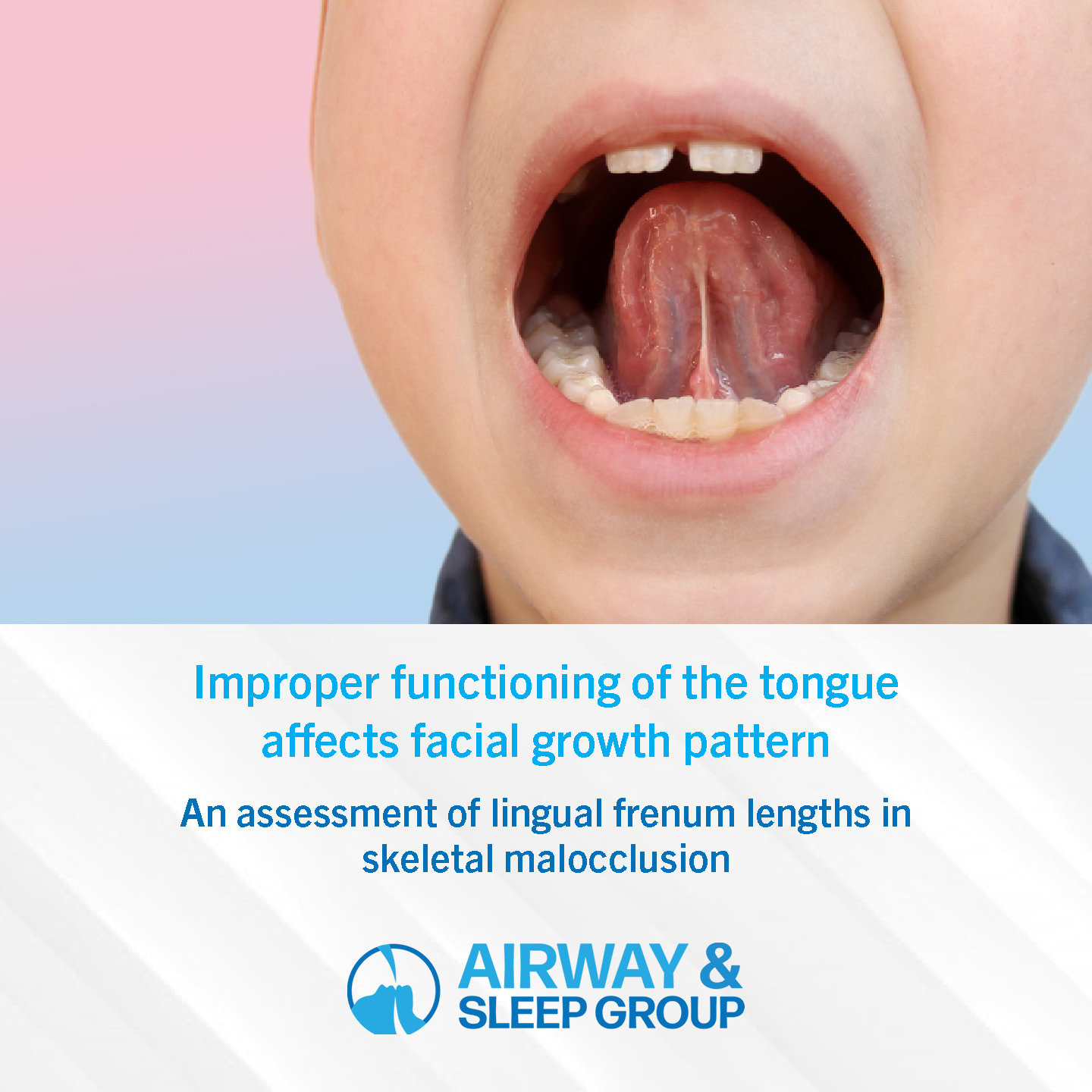Listen to the podcast here.
Orofacial musculature plays a pivotal role in maintaining a balance in positioning of the teeth. The wrong position or improper functioning of the tongue muscles and any imbalance which occurs in this, results in malocclusion, or the imperfect positioning of the teeth when the jaws are closed. This can impair a persons chewing, swallowing, and speech functions.
Lingual frenulum lengths and Class III malocclusion
An assessment of Lingual frenulum lengths in skeletal malocclusion showed that the lingual frenum, or the soft tissue structure which tethers the ventral surface of the tongue to the floor of the mouth, was found to be longest in class III malocclusion. Class III malocclusion represents a complex three-dimensional facial skeletal imbalance between maxillary and mandibular growth along with varying degrees of dentoalveolar and soft tissue compensations. The maximum opening of the mouth was significantly reduced in the skeletal Class III subjects compared with Class I and Class II subjects.
The lingual frenulum exerts erratic forces and a long lingual frenulum pushes the mandibular anteriors forwards, resulting in malocclusion. Following the orthodontic correction of malocclusion, Myofunctional Therapy, involving tongue exercises, can encourage adequate facial and dental growth to eliminate the improper functioning of the tongue muscles that had affected the teeth positioning.
Orofacial Myofunctional Therapy
Regardless of the genetic potential towards normal development, the wrong positioning and function of the tongue can affect the facial growth pattern. Orofacial Myofunctional Therapy can identify and eliminate the disorders involving the muscles of the tongue. In each Myofunctional Therapy session, the patient learns three to four exercises that target specific structural issues. Session one is comparatively easy, with exercises becoming more challenging with each visit. The good news is that these exercises are proven effective with no more than five minutes work, twice a day, with the exception of one timed exercise that can be done at any time. The time investment is small, considering the benefits.
If your child has difficulty chewing, swallowing or has speech issues, schedule a consultation with Airway and Sleep group by calling (571) 244-7329 for an oral evaluation. Orofacial Myofunctional Therapy can help!

